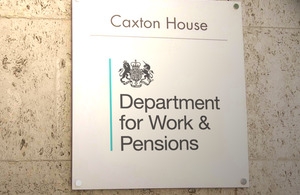Pensioners can top up their State Pensions by an extra £1 to £25 a week in exchange for a lump sum payment from today under a new scheme.
Anyone reaching State Pension age before 6 April 2016 is eligible, the Government said.
Men aged 65 or older and women aged 63 or older are being offered a chance to increase their State Pension by up to £25 a week - – worth up to £1,300 a year.
The cost of a State Pension top up is based on a person’s age and takes average life expectancy into account. For a 65-year-old, an extra £10 of pension a week will cost £8,900, whereas for a 75-year-old the contribution rate for the same amount of pension is £6,740, the official guidance stated.
The scheme will remain open for 18 months and unlike Pensioner Bonds there is not a limited amount of money available for this, so people do not need to rush with applications, officials said.
{desktop}{/desktop}{mobile}{/mobile}
According to the Department for Work and Pensions, in most cases, surviving spouses and civil partners will be able to inherit at least 50% of the extra pension.
Minister for Pensions, Baroness Altmann, said this would be an opportunity for people to increase their guaranteed retirement income for the years ahead with a boost which will be index-linked, helping to protect pensioners and their spouse or civil partner from inflation.
She said: “We have already committed to protecting pensioner incomes with the triple lock – uprating the basic State Pension by at least 2.5% each year of this Parliament. The new State Pension, coming in from April 2016, will ensure a simpler, more sustainable State Pension for the pensioners of tomorrow.
“Top up is an opportunity for people already retired, or reaching State Pension age before April 2016, to boost their later life income. It won’t be right for everybody and it’s important to seek guidance or advice to check if it’s the right option for you. But it could be particularly attractive for those who haven’t had the chance to build significant amounts of State Pension, particularly many women and people who have been self-employed.”

